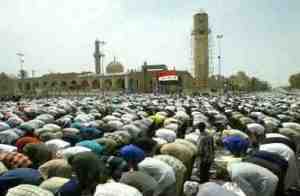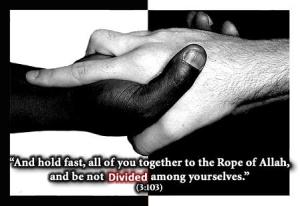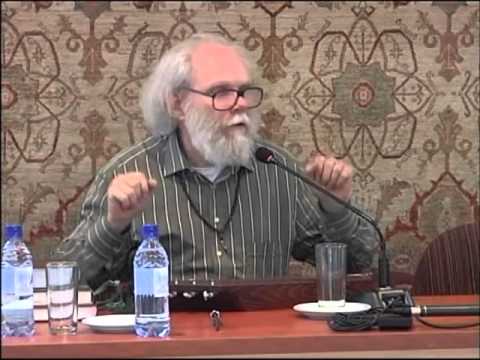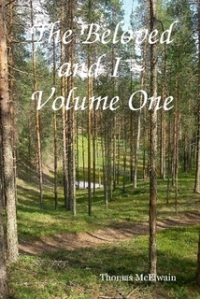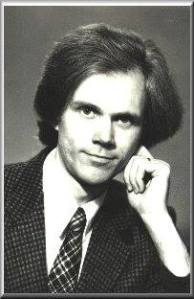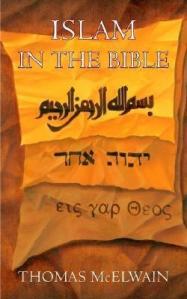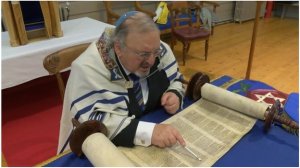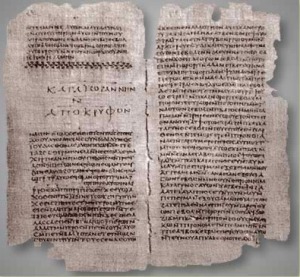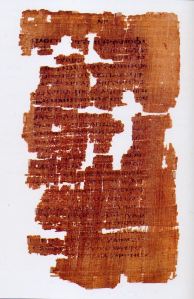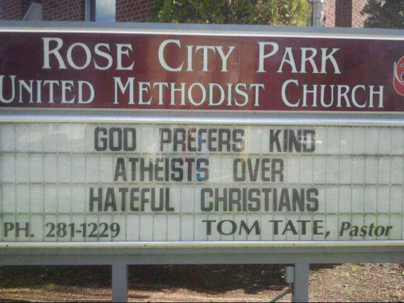Before I begin I would like to point out that this is not directed at all Muslims, as there are many that already have nothing but love for their brothers and sisters from different Islamic traditions, but to those whom still remain in their ignorance and bigotry.
“We must put an end to anything which brings about any Islamic unity between the sons of the Muslims. As we have already succeeded in finishing off the Khilafah, so we must ensure that there will never arise again unity for the Muslims, whether it be intellectual or cultural unity.”
As a Muslim when ever I read that quote I get infuriated. There has never before been any moment in history with a greater need of Muslim unity than the present moment. Yet when I think of that quote, no matter how mad I get, I realize Islam does not need any outside force to keep it divided, we do that ourselves. Sure the European nations which colonized the Islamic world divided it up into superficial states that did not exist before hand. However the problems that prevent Islamic unity are religious and theological, and these disputes are caused by Muslims.
At present moment Shia and Sunni Muslims both condemn and kill each other. The animosity between Sunni and Shia is one that has existed since atleast the Abbasid era (1258 C.E). There is a history of violence and persecution of Ahmadiyya by their Muslim brothers. More recently Hadith believers and those who do not accept the Hadith, Quranisti, both denounce each other as not being real Muslims. It is not just sect against sect, it is sometimes madhhabii against madhhabiii. Once here in Indonesia I heard an Imam say that Muslims in North Africa don’t have fiqh because they follow the Maliki madhhab. This mentality of, “If you don’t believe just as I do you are not a Muslim, you are not my brother or sister.”, has to stopiv.
“A house divided against itself cannot stand.”
-Abraham Lincoln
The Consequences Of This Infighting
The world is no longer a collection of disconnected nations and peoples but an interconnected global community, which the Islamic world and Muslims are apart of. This is due to the advent of jet planes and the internet. People can travel from one side of the planet to the next in less than a day now and information can circle the globe with the press of a button. When something happens on one side of the planet, it can be known all over the globe almost instantly. Another reality of the modern world is: whether we like it or not, regardless of whether it is fair or not, Non-Muslims judge Islam based on our actions. Every single Muslim, no mater what sect or tradition they follow is an ambassador of Islam to the World.
Whenever one Muslim calls another Muslim, who practices a different form of Islam a disbeliever, insults them, and/or threatens them, this has far reaching consequences. As does assaulting these Muslims or vandalizing their Mosques and homes, even in the most remote lands. In this technologically advanced age of social media and news outlets, news can travel very far and fast. Nothing makes great ratings for a news story quite like violence and hate carried out by Muslims, in the West, where Islamophobia runs ramped. If a Muslim writes derogatory remarks about a fellow Muslim on the internet, it is likely to remain there permanently for all to see. Islamophobes and those who wish to discredit Islam love it when Muslims participate in this type of behavior. It gives validity to their world view.
If you live in an Islamic country or one with a Muslim majority population, you will probably not feel the effects of this type of behavior, but if you are a brother or sister who lives in North America, Europe, or any Muslim minority country you will. As a Muslim who has lived in a small town in the American Southeast, I experienced back lash from this type of behavior. I was told that I believed in a Satanic religion and that I would one day become a full fledged terrorist. When one Muslim disrespects a Muslim of a different variety, Muslim around the world feel it.
Not only does this make the lives of our brothers and sisters who live in Muslim minority countries more difficult, it also makes the work our brothers and sisters who undertake performing dawahv more difficult as well. Anyone who has ever performed dawah, or who defends Islam from Christian missionaries and apologists, can tell you that the atrocities carried out by supposed Muslims comes up very often. Christian missionaries and apologists use such material to make Islamophobic material, to create hate among Non-Muslims, whom are not well educated, against Islam. When a Muslim disrespects another Muslim or commits acts of violence against them, he or she gives the enemies of Islam ammunition to use against us.
When a Muslim hurts another Muslim of a different sect or background, not only does he hurt that brother or sister, he hurts all Muslims, including those of their own variety, such as his own mother and father. A believer in Islam who does such things is even more Anti-Islamic than the worst Islamophobe, close minded missionary and apologist.
Benefits Of Muslim Unity
If our infighting and hatred harms our religion, then our doing the exact opposite will strengthen it. This could bring with it several benefits for both us as individual Muslims and our religion as a whole.
1. Islam’s Self Image
As I said before, we as Muslims are representatives of our religion, when people see us, they believe they see Islam. Islam is a religion of peace. Islam calls us to better our world, to help our fellow man, not just our fellow Muslims, to establish and protect justice. Yet when people see infighting in Islam, Muslim’s killing one another, it causes doubts. “How can it be a religion of peace, when they kill each other?” Fortunately the opposite is also true, when we live by Islam, and we love our fellow Muslims as ourselves, as the Prophet commanded usvi, the image of Islam can inspire not doubt, but interest in Islam, even conversion to the faith!
Malcolm X is a prime example of the power the image of Islam has to change people’s lives. When he was first introduced to Islam, it was by the Nation of Islam, a racist, black supremest religious group. He adhered to this view for sometime, but after journeying to Mecca, where he saw equality between Muslims, despite the color of their skin, he renounced his belief in racism and embraced Sunni Islam.vii
2. A Tighter Ummahviii
This serves two functions, first with a tighter community we can stand together more firmly. When a crisis strikes, whether man made or natural, community and unity is a must. Members of a community must come together to support one another. As the old adage goes, there is in fact strength in numbers. A community is a lot like a forest, when a wind storm comes the trees support each other, some block the wind, others entangle their roots, but they all support each other. Thus the trees in the forest will have a better chance of surviving, than a lone tree, or disconnected tress.
Secondly with a tighter Ummah comes a more closer knit brotherhood and sisterhood of Islam. Not only can this cause us to build stronger relationships with members of the Muslim community, this can offer us great learning experiences. Though we may disagree on some issues, we agree on many as well, and we could learn how to see these commonalities from different perspectives.
The Commonalities All Muslims Share
We do disagree on some issues, such as the hadithsix, and these differences are important ones that we should be able to discuss freely with one another, but we also have many commonalities. These include:
1. Belief in one God Allah.
2. Belief in Muhammad (PBUH) as a prophet.
3. Acceptance of The Quran as authoritative scripture
4. Prayer
5. Fasting
6. Giving to poor
7. Pilgrimage
We don’t have to agree on everything, but we do need realize that at the core of our Islamic traditions is the same foundation. We may not disagree with these elements, but we may differ in our interpretation of them, and we need to realize and accept that. It is certainly possible to disagree with out being disagreeable.
How Can We Bring about Muslim Unity?
1. We have respect each other as Muslims
Not only must different Muslims and their beliefs be tolerated but they each must be counted as a full member of the Muslim community. More so, we as individual Muslims have to love each other as brothers and sisters in Islam, even if we do not believe the exact same way they do.
2. We have to educate ourselves
We have to educate ourselves, so that we can become more familiar with the beliefs of our brothers and sisters. The more we educate ourselves, the less alien those different from us appear. More so there is much negative, false material out there that demonizes Muslims from various Islamic tradition, this education can give us the ability to shift through this stuff and to defend each other against those that wish to divide us. When you are learning it is important to be critical of your sources. As Krister Stendahl said,
“When trying to understand another religion, you should ask the adherents of that religion and not its enemies.”x
If you cannot find sources that meet these requirements, then seek those by neutral, mainstream, and qualified scholarsxi, but never trust anything that is written by someone that is biased against a group of people. An even better way to learn is to meet and befriend other Muslims whom come from the different Islamic traditions.
3. We have to educate our children
Just as important, if not more so, than educating ourselves, we have to educate our children. It is cliche to say, but still very true, our children are our future. More so they and their children are our extensions into the future. We need to be very mindful of their education about others, even more than we are with ours. If you befriend believers from other Islamic traditions and they have children, introduce your children to them. Their most important source of education must be from you though. Not your words but your actions. Your children must learn how to respect other Muslims from how you respect them. Be sure you set a positive example for your children to follow, for the world of tomorrow is built by our actions of today, and through our children, we will inhabit that world.
What This Does Not Mean
This does not mean you have to accept, agree with, or believe in what other Muslims, those different from you believe in. It does mean you have to respect their right to believe in it and their right to practice their form of Islam.
Lastly if you ever think about hating a fellow Muslim or if you think that a Muslim is not your brother or sister just because they do not believe and practice exactly like you, and stop and remember this
“We must put an end to anything which brings about any Islamic unity between the sons of the Muslims. As we have already succeeded in finishing off the Khilafah, so we must ensure that there will never arise again unity for the Muslims, whether it be intellectual or cultural unity.”
-George Curzon, former British Foreign Minister
iSometimes called Quran Aloners, Quran Alone Muslims, or by their detractors Hadith Rejectors.
iiA school of usual al-fiqh, which is principals of Jurisprudence
iiiThis is a new occurrence. Historically most of the Sunni schools of Madhhab respected each other and considered each to be valid. Robinson, Francis. Atlas of the Islamic World since 1500. New York, NY: Facts On File, 1982. Print. Pp 29
ivThis issue is not unique to Islam. In Judaism the Ultra-Orthodox Jews considers Conservative, Reform, and Reconstructionalist Judaism not to be real Judaism. In Christianity, many evangelical and fundamentalist Christians believe that Catholic and Orthodox Christians are not really Christians and that they are idolaters.
vThe preaching of Islam to Non-Muslims to convert them
vi “None of you truly believes until he loves for his brother what he loves for himself.”, Al-Bukhari, Book 2, Volume 1, Hadith 12
viiMalcolm, X, and Alex Haley. The Autobiography of Malcolm X: With the Assistance of Alex Haley. New York: Grove Press, 1965. Print. pp. 388–393
viiiArabic for nation or community.
ixSunni and Shia do not except all of the same traditions, though there is much overlap, where as the Quran Alone Muslims do not accept any hadiths, as their name suggests..
xStendahl’s three rules of religious understanding
xiSuch as Karen Armstrong.


